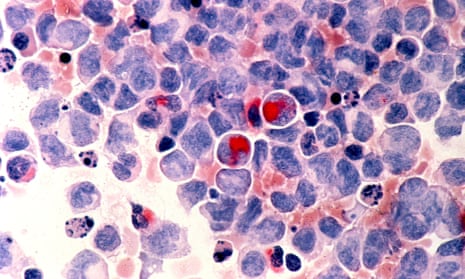The Cancer Drugs Fund, set up by the government to pay for expensive medicines that the NHS would not normally finance, failed to benefit patients and may have resulted in some of them suffering unnecessarily from toxic side-effects, experts say.
An analysis in a leading cancer journal has found that the fund paid out £1.27bn from 2010 to 2016 – an amount that would have paid for an entire year of mainstream cancer drugs for the NHS.
But medicine it paid for was not worth the money, the report concluded. The analysis in the Annals of Oncology journal looked at 29 cancer drugs approved for 47 different types of treatment (known as indications), some of which were approved to treat more than one cancer. They found that only 18 of the 47 treatments prolonged the patient’s life, and then only by an average of three months.
Many of the drugs were approved by the fund on the basis of clinical trials that aimed only for what is called “progression-free survival”, where there is no sign in a scan or test that the cancer is growing. But patients often did not live any longer because the cancer would come back suddenly with lethal force.
The experts from London, Bristol and New York said that, from the patient’s perspective, increased progression-free survival might not be a benefit at all, since it not infrequently came with toxic side-effects.
Prof Richard Sullivan, of the institute of cancer policy at King’s College London, one of the authors, said the Cancer Drugs Fund had been “a massive health error”.
It was set up in 2010 because of the public outcry whenever the National Institute for Health and Care Excellence (Nice) turned down a new cancer drug for NHS use on the grounds that it was not cost-effective. The establishment of the fund was one of David Cameron’s election pledges. But, said Sullivan, although it was clear from Nice’s assessments that many of these drugs were not good value for money, neither doctors nor scientists nor the cancer charities spoke out against it.
“In science, we demand levels of evidence, but public policy is opinion-based, not evidence-based. You can’t have that in health. Populism doesn’t work,” he said.
Sullivan said that, wrongly, drugstook precedence in most people’s thinking over other treatments. Surgery can be curative and is the most important treatment and radiotherapy is also a valuable tool.
The paper, by Dr Ajay Aggarwal of the London School of Hygiene and Tropical Medicine, and colleagues, warns that other countries that may have been eyeing the Cancer Drugs Fund as a way to deal with the huge problem of soaring costs should think again. “Despite significant expenditure, there remains no evidence that the CDF has delivered meaningful value to NHS patients,” it says. “We recommend the avoidance of similar “ringfenced” drug access schemes in other countries.”
In 2016, as the costs of the fund span out of control, NHS England took action to wind it down in its current form. The CDF conducted its own assessment of the trial evidence behind the drugs it was paying for and struck off 24 of the 47 treatments – just over half of them because they offered insufficient value for money.
“Eighteen of these reversals were based on evidence that existed prior to the introduction of the fund, suggesting wastage of resources, but equally that drugs were given that were ineffective and probably resulted in unnecessary toxicities for patients,” said Aggarwal.
The fund has since reopened, but is now a supportive pot of money to enable evidence to be collected on the performance of promising new drugs. That sort of data should have been collected from the beginning, but was not, say the experts. Hard bargaining with pharmaceutical companies has brought down the prices that they are charging for these drugs.
The Institute of Cancer Research, which has carried out trials on many important cancer drugs, did not defend the fund. “The old Cancer Drugs Fund was always just a sticking plaster and we welcomed its overhaul because it was too expensive, unsustainable, and provided little certainty to patients and their doctors,” said Prof Paul Workman, the institute’s chief executive. “The new, more evidence-based system, where Nice appraises all cancer drugs, should address some of the issues highlighted in this study.
“But while we support the rigorous drug evaluation that Nice carries out, it’s essential that the new system continues to offer fast access to the most innovative and exciting cancer drugs. We need Nice to reform the way it evaluates drugs to place greater emphasis on how innovative they are, to ensure patients are not denied the most promising treatments purely because of their cost.”
But breast cancer charities, which have been strong supporters of the fund in the past, said there was still a need for extra money for cancer drugs. “While the old Cancer Drugs Fund was far from perfect – poor management and a distinct lack of data meant it was left in chaos – it did offer an avenue for people with incurable secondary breast cancer in England to access new treatments unavailable on the NHS,” said Danni Manzi, head of policy and campaigns at Breast Cancer Care.
“It remains a constant uphill battle for people living with incurable breast cancer to get the drugs they so desperately need. Now facing changes to funding systems, including cost caps, women tell us they are even more anxious about getting treatments to give them priceless extra time with loved ones.”
